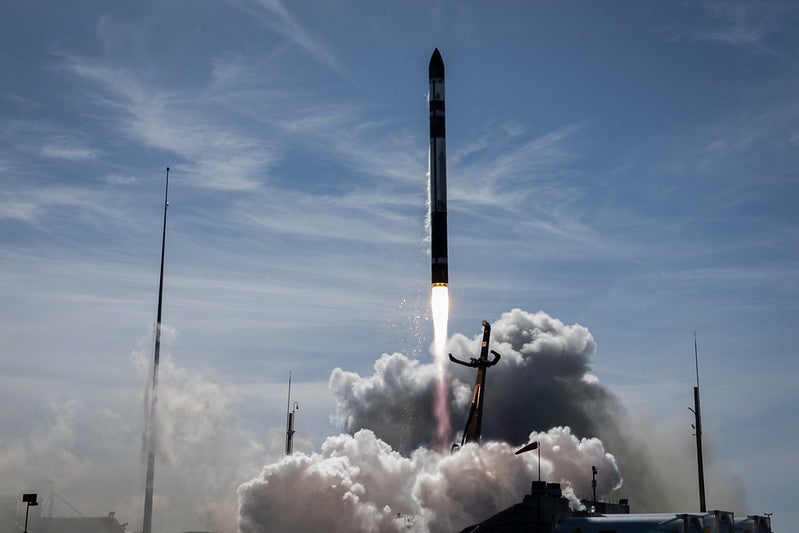Latest News

Rocket Lab launches five IoT satellites for Kinéis on Nov. 25. Photo: Rocket Lab
Note — This story was updated on Dec. 9 with more information on the suborbital mission
Rocket Lab hit the milestone of launching two missions from two continents in less than 24 hours between Sunday and Monday.
The milestone kicked off with a mission from Launch Complex 2 at the NASA Wallops Flight Facility in Virginia on Sunday at 1 a.m. EST. Then, about 22 hours later, Rocket Lab followed it up with a launch from New Zealand delivering five satellites to orbit for the Kinéis IoT constellation.
This was Rocket Lab’s fastest turnaround between launches and broke the company’s record for the number of Electron launches in one year. Rocket Lab set a new record of 12 launches earlier this month, and has now completed 14 Electron launches for this year.
“Two successful launches less than 24 hours apart from pads in different hemispheres. That’s unprecedented capability in the small launch market and one we’re immensely proud to deliver at Rocket Lab,” CEO Peter Beck commented.
After initially not sharing specifics of the mission from Wallops Flight Facility, Rocket Lab confirmed on Dec. 9 that it was a suborbital mission that tested hypersonic technology for the Department of Defense. The mission provided hypersonic test launch capabilities under the Multi-Service Advanced Capability Hypersonics Test Bed (MACH-TB) project, which aims to increase hypersonic flight testing for the United States.
“Hypersonic technology testing is a critical need for the nation and one that we’re proud to be serving with our test launches. Again, we broke new ground with this launch, and our ability to deliver successful tests demonstrates our commitment to working with our government and industry partners in pushing the boundaries of hypersonic innovation,” Rocket Lab’s Vice President Global Launch Services, Brian Rogers commented on Dec. 9.
The New Zealand mission, dubbed ‘Ice AIS Baby,’ was the third of five missions Rocket Lab is scheduled to deliver for French constellation operator Kinéis. AIS is a reference to the automatic identification system (AIS) data the satellites will collect. Kinéis confirmed post-launch the mission was successful.
Get the latest Via Satellite news!
Subscribe Now